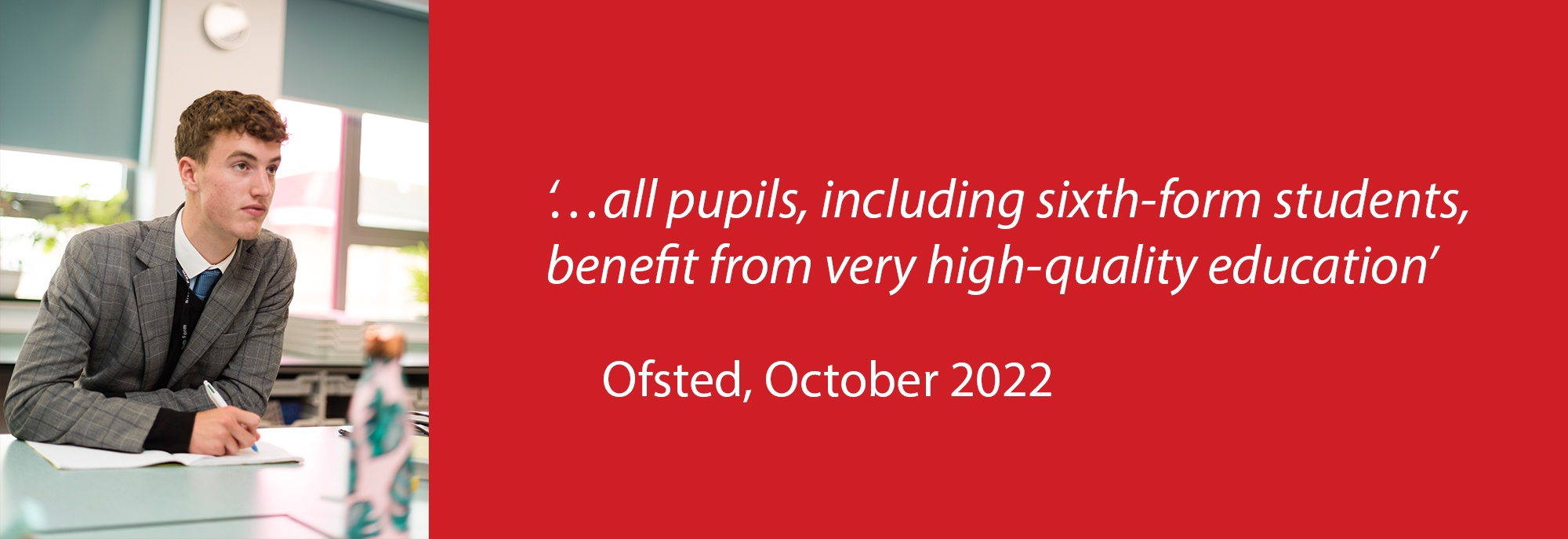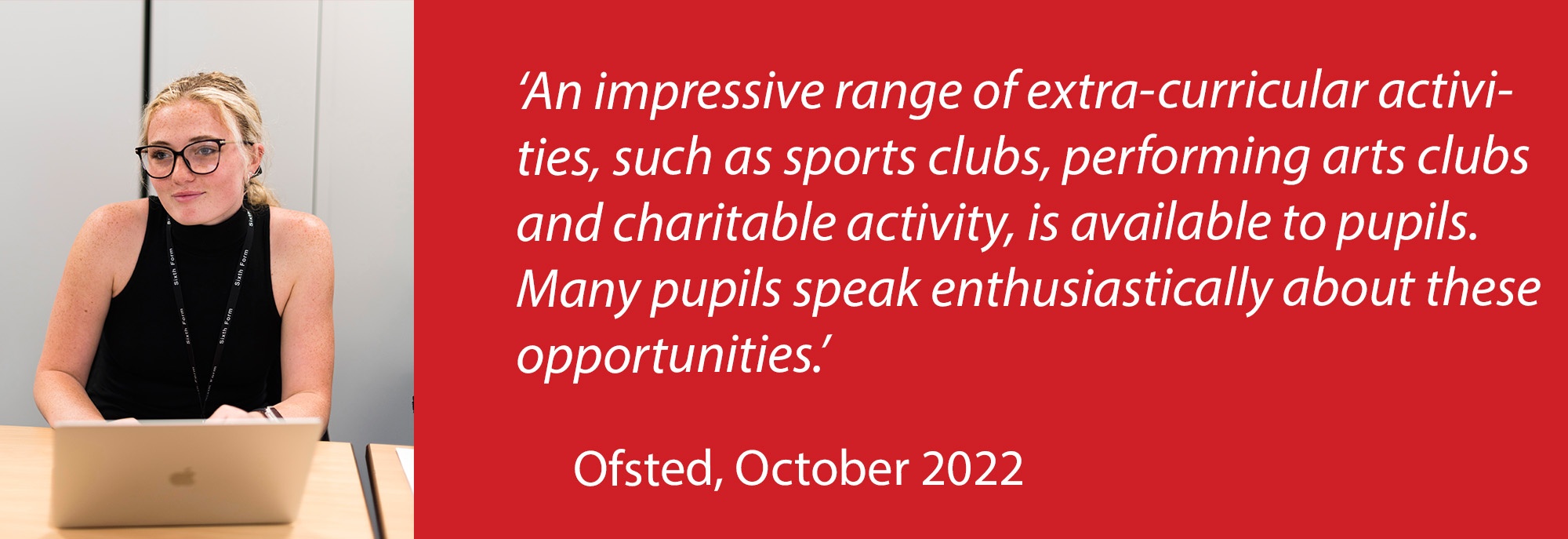Overview
Core Physical Education
Physical Education is a subject distinct from other academic subjects. At Bourne Grammar School we seek to combine all of the traditional qualities that sport can offer alongside an academic education. As a compulsory subject from Years 7 to 11, we aim to teach basic skills in Year 7 and develop these in Year 8. Year 9 broadens the range of experiences, whilst Year 10 follows a deep-seated belief that students can develop their personal qualities through the medium of Leadership: Sport, Dance and Fitness are 3 Pathways students opt into; this is central to the Year 10 course. An extensive Options programme is provided for Year 11 students that includes some external and off-site provision. It is our aim to improve all students’ performance irrespective of their natural ability or previous experience and to develop an active lifestyle and enthusiasm for at least one activity which can be maintained after they leave school.
Post-16 an increasing range of activities are offered to allow students to continue to pursue recreational sport whilst also, should they choose, participate in Inter-School competitive sport.
Extra-curricular sport
We pride ourselves on the number and variety of clubs which we offer students: girls/boys Football, girls/boys Hockey, Netball, Rugby, Cross Country, Badminton, Basketball, Rugby, Athletics, Tennis and Cricket. All clubs are open to all students.
We attain regular success both on an individual level and in team sports. Success at local, County, Regional and National level has been an annual occurrence since 2002. We have regularly appeared in the top 30 State Schools for Sport in the Country, reaching our highest position of 24th in 2018. During the past year we have competed in over 300 fixtures in more than 15 different sports and teams for virtually every age group in most sports.
Many other individual and team successes are celebrated in our termly Newsletters and annual Sports Presentation Evening in July. Other events on the calendar include Inter-House cross country and Sports Day, an annual ski trip, the Girls’ Sports Dinner and Presentation and boys and girls Football tour to Disneyland, Paris
Examination opportunities
Physical Education is available as an option subject at both GCSE and A-Level, following the AQA examination board, where results are consistently well above national expectations and often among the best results in the School.
Year 7
Following the initial activities in the first two weeks of term, students have been following a short programme of lessons to develop some of the key skills required in either rugby or netball. Boys undertake passing drills, understand how to tackle and ruck safely in rugby, whilst the girls develop their knowledge, basic passing, footwork, dodging and shooting in netball.
For the remainder of the Autumn and Spring terms, students follow a carousel of activities undertaken in a series of 6 lessons per activity. The focus in Year 7 is for students to grasp the basic skills and techniques required for each sport or activity and trying to establish consistency in performance.
Boys follow the games of football, basketball or rugby, whilst the girls are taught netball, hockey and football. Other activities undertaken by all students through to the Easter break are orienteering and problem solving, gymnastics and fitness.
All students learn the basic components of a warm-up and have the opportunity to lead small groups of peers. In addition, some students will have been given the opportunity to officiate or umpire in small game settings.
The summer offers an opportunity to undertake tennis, cricket and athletics. Whilst the games of tennis and cricket are taught for 5 lessons each, athletics is taught throughout terms 5 and 6, providing 10 periods of the activity. The focus across all three activities in Year 7 is about establishing the basic skills and techniques required.
Due to the diversity of the athletic events, students not only address the event itself, but also learn in greater depth about the officiating of some and may undertake a variety of officiating roles, developing a foundation built upon in future years. The UK Athletics Award Scheme is used to encourage students to excel, providing target times/distances set in stages concluding in a Bronze, Silver and Gold category.
Clubs for all three sports exist after school to encourage participation, and for those wishing, a higher level of inter-school competition is available.
Year 8
To enhance understanding and build upon knowledge from Year 7, similar activities are pursued during the Autumn and Spring but for 8 lessons each and with greater emphasis on the skills being used in the full context of the activity i.e. small-sided game play and tactics, sequence work in gymnastics, orienteering skills and map work as well as developing determination and target setting in fitness. Exercise education is a new area of activity where students develop an understanding of how to prepare and structure exercise as well as experiencing a variety of engaging exercise activities. A similar approach is adopted for the Summer activities and as in Year 7, for 5 or 10 lessons per activity.
Year 9
From September until Easter all students will follow a carousel of 8 different activities, each for 6 lessons in duration. Some will be undertaken in as mixed groups whilst others as single gender. All will be taught similar skills although progressions will be developed appropriately for the group to ensure challenge, yet success. Where these activities have been studied previously, a greater focus is placed on the coaching and officiating undertaken by students. For new activities, a basic grasp of the skills needed will be the focus, prior to using these in the game setting.
The summer term provides an opportunity to undertake tennis, cricket, athletics and rounders/softball. Each activity is taught for 5 lessons and whilst the development of skills is inherent in lessons, greater emphasis is placed on the roles of officiating and the analysis of skill. The UK Athletics Award Scheme is again used to encourage students to excel, providing target times/distances set in stages concluding in Bronze, Silver and Gold, but central to this system is the student's ability to organise the competitions of triple jump and javelin, managing the competitors and taking on a variety of officiating roles.
Year 10
During the year students opt for one of the three Leadership courses that are offered to Year 10. The courses, based around Sport, Dance or Fitness.
Each Pathway follows the same general syllabus:
- Developing personal skills of communication, planning organisation and positioning.
- Leading basic warm-ups to their peers
- Leading skills sessions to small groups
Each course diversifies to become more specialist to its field:
Dance - Students prepare a routine/dance for local Primary School children who visit the School for the afternoon.
Sport - Students may lead circuit sessions and tournaments for their peers, work with local Primary School children to run cricket, netball, or tennis coaching sessions, assist with inter-school sports tournaments. Some will also have the opportunity to start basic coaching qualifications and officiate at School Games events.
Fitness - Greater understanding of the skeletal and muscular systems, diet and health living and the ability to plan and follow their own 6-week training programme suitable to their needs.
Students also follow football or netball in double lessons until January, when a variety of other activities including lacrosse, handball, tag rugby, and aerobics or circuits are introduced.
Following completion of the Leadership courses at Easter, students have the opportunity to select two activities from athletics, rounders, cricket and tennis for the Summer term.
Year 11
In Year 11 students are given greater freedom in the activities they pursue. A wide variety are on offer, from the core games that have been taught in Years 7-10 to more diverse activities such as self-defence, golf or Climbing at the wall in Peterborough.
Examination Physical Education
GCSE Years 10 & 11
Students follow the AQA GCSE Physical Education (8582) specification. The course, taught over two years culminates in two 75 minute exams, forming 60% of the final grade. The syllabus focuses on:
- Applied anatomy and physiology
- Movement analysis
- Physical training
- Use of data
- Sports psychology
- Socio-cultural influences
- Health, fitness and well-being.
The remaining 40% is obtained from the NEA unit:
- 3 practical activities, each worth 10%
- Written Analysis & evaluation (10%)
Years 12 & 13
Students follow the AQA A-level Physical Education (7582) specification. The course, taught over two years culminates in two 120 minute exams, forming 70% of the final grade. The syllabus focuses on:
- Applied anatomy & physiology
- Skill acquisition
- Sport and society
- Exercise physiology
- Biomechanical movement
- Sports psychology
- Sport and society and the role of technology in physical activity and sport
The remaining 30% is obtained from the NEA unit:
- Students assessed as a performer or coach in the full sided version of one activity
- Written/verbal analysis of performance


